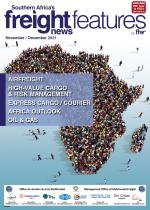As the world continues to adapt to the Covid-induced new normal, Africa remains one of the most exciting investment destinations globally.According to Investing in Africa (Afsic), there are many reasons why Africa presents investment opportunity for those with a long-term outlook, including that it is still fairly unexplored from a global investment perspective.“This results in what we think are very low valuations both in African debt and equity investments, which offer attractive entry points, especially when compared to valuations in many more developed markets,” reads a statement by Afsic.Another reason is that Africa is experiencing a massive population boom. Currently, 17% of the world’s population is African. At current rates, Africa is growing by the equivalent population of France every two years and will double by 2050. It is expected to double again between 2050 and 2100 to 4.3bn people, or account for as much as 40% of the world’s population.Also, says Afsic, since the 1960s Africa’s GDP per head has been growing as the continent has developed. “Unless that trend changes, then the strong demographic growth should lead to strong GDP economic growth.”Furthermore, the continent’s economic growth is coming off a low base, translating into GDP growth rates that are significantly higher than in many other developed countries.According to Rand Merchant Bank’s (RMB) latest ‘Where to Invest in Africa’ report, there are ten countries that offer real opportunity to investors:Egypt: While Egypt’s economy was hard hit by the Covid-19 pandemic, it was also one of the first to bounce back and is again on a path of growth. RMB rates Egypt as Africa’s top investment destination thanks to its strong structural reform programmes. Also, the reduction of its twin deficits in recent years has made it possible to replenish the country’s foreign exchange reserves, ensuring that Egypt is better equipped to cope with extreme global shocks.Morocco: The economy of Morocco continues to benefit from political stability, states RMB. A special fund to combat Covid-19 was established in 2020, while the king also announced that $12.9bn would be devoted to boosting the economy.South Africa: RMB maintains that the depth and variety of South Africa’s resources provide a strong backbone for economic growth over the next few years. South Africa is also a strong manufacturing and retail base that will continue to support southern African regional economies with goods and services.Rwanda: Still considered one of Africa’s greatest good-news stories, Rwanda continues to benefit from the efforts it has made to improve its operating environment. It offers one of the most attractive business climates on the continent, and the National Strategy for Transformation (NST) continues to see various investments, with the construction and energy sectors in particular set to benefit over the next few years.Botswana: This landlocked southern African country boasts very high foreign-exchange reserves, and it has weathered the pandemic-induced economic storm better than most, according to RMB. Diamond mining is still seen as having key growth potential, while the government is continuing to embark on an economic diversification drive.Ghana: According to RMB, Ghana entered the current crisis on a relatively stronger footing than many of its African peers. Structurally, the country’s economy has seen major shifts over the past few years, positioning it for significant growth going forward. It is also extremely stable from a political point of view.Mauritius: An extremely favourable tax regime and ongoing drive to diversify the economy bode well for this East African island. Political stability and good governance have contributed to the country’s highly competitive business climate at international level.Côte d’Ivoire (CIV): Another one of Africa’s good-news stories, the CIV has seen a steady rise in private investment in recent years. Government spending has been centred around infrastructure, and despite some violent outbursts during the election in 2020, the country has been stable politically.Kenya: It’s still one of the fastest-growing economies in Africa, and the Kenyan government’s efforts to focus on industrialisation, universal health coverage, food security, and affordable housing continues to be a strength. At the same time the business climate is improving and various reforms have been welcomed by international investors.Tanzania: Tanzania has been on a rapid path of development over the past few years. According to RMB, this growth can be attributed to consistent public investment from the government in key secondary and tertiary sectors, ranging from the energy sector to advancements in the telecommunications and finance sectors.

